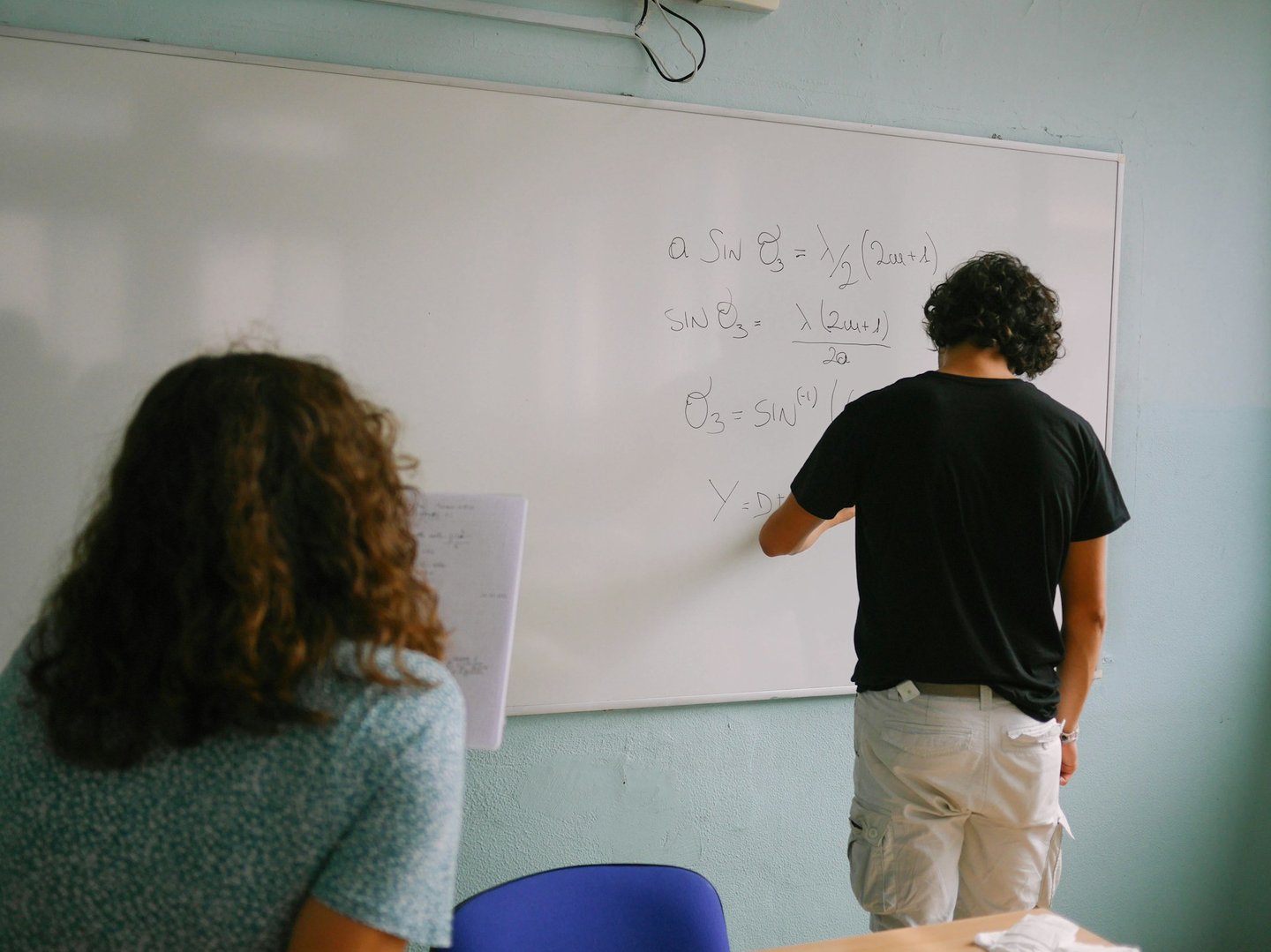Growth Mindset And Learning Cambridge Mathematics
In learning Cambridge Mathematics, many students get carried away with the small details and want to know everything perfectly. Unfortunately, this is impossible. Rather, students need a growth mindset that is able to focus on the bigger picture. This approach actually helps students improve their understanding of the material.
STUDENTS
Don L'Amour Chimhanda
9/23/20245 min read


I’ve always been the person urging you to dig deep when learning something—no shortcuts, no slacking. But today, I’m offering a new perspective. Don’t worry, I haven’t done a 180° on my beliefs. I’m simply here to tell you that your understanding of a topic doesn’t need to be perfect or all-encompassing. It just needs to be good enough.
Growth Mindset In Learning Cambridge Mathematics
Instead, the key to effective learning is developing a broad understanding of core concepts and their applications. When you open a textbook, don’t just dive into note-taking and fact-memorizing mode. Ask yourself: What is the main takeaway here? How can I use this knowledge in my field? How does this concept impact the real world? If you don’t know the answer, resources like YouTube can help explain it in practical, accessible ways.
Balancing Learning And Facts
Now, before you dismiss that idea, let’s ask a fundamental question: What is the purpose of learning? Is it to memorize every single fact, equation, or definition? Or is there something deeper to it? Spoiler: it’s the latter. The purpose of education is to acquire knowledge you can actually use. It’s about gaining skills that can be applied in the real world. And yet, many students fall into the trap of trying to know everything, cramming every detail into their minds as if that's the key to success.
Accept Your Limitations And Master A Growth Mindset
Here’s a humbling truth: no one can know everything. And more importantly, you don’t need to. What matters is whether you can apply the knowledge you’ve gained. You can memorize hundreds of vocabulary words or equations, but if you can’t use that knowledge to solve problems or create something of value, it’s essentially wasted. Knowing facts isn’t enough. It’s what you do with them that counts.
Application Is The Purpose Of Education Not Rote Learning
Take chemistry, for instance. You might memorize the entire periodic table and know every element by heart, but if you can’t apply that knowledge to conduct even a simple experiment, what good does it do? Education should be about building practical skills—learning how to use information, not just store it in your mind.
The Trap Of Rote Learning And Fixed Mindsets
Unfortunately, many educational systems are still designed as though we live in a world where facts are hard to come by. Exams test how much you can remember, not how well you can use the knowledge. The structure of these tests hasn’t evolved to reflect the information-rich world we now live in. As a result, students quickly realize that they can excel by memorizing facts, without ever learning how to apply them.
Abandon The Pursuit Of Perfection
But that kind of microscopic understanding is not only unattainable, it’s unnecessary. No one, not even the authors of the textbooks you’re reading, expects you to know everything. Even they consulted multiple sources while writing, borrowing information and ideas. Expecting yourself to remember every word from cover to cover is unrealistic and counterproductive.
Focus On Application Of Knowledge
This approach is not only overwhelming but also misguided. As students, we often dive into textbooks without a clear goal in mind, thinking the more we know, the better. The problem? Our brains have limited capacity. Trying to know everything often leads to burnout, frustration, and the feeling that we’re never quite "good enough."




This becomes even more relevant in today’s world, where facts are at our fingertips. Thanks to the internet, we can access nearly any piece of information within seconds. So, why should we turn our minds into storage units for random data? Instead, the focus should be on how to apply that information in meaningful ways.


And that’s where the real problem begins. When the goal becomes simply to "know" rather than to "understand and use," students start pushing themselves toward an unrealistic standard—mastering every detail, no matter how irrelevant. This leads to endless hours of cramming and rote memorization. It’s here that the dangerous perfectionism in learning sets in, with students thinking they need to grasp every fact about a subject to fully understand it.


Another trap students often fall into is studying content beyond the scope of what’s required. Academic texts are filled with material that goes far beyond what you need for your course. This extra information is there to provide context, not to be memorized. Yet, many students feel the pressure to know it all, just in case it shows up on a test. It’s a futile exercise that only deepens the cycle of stress and perfectionism.


In conclusion, don’t fall into the trap of chasing perfect, exhaustive knowledge. Focus instead on understanding the bigger picture and how you can apply what you’ve learned. That’s the true measure of success in education. You don’t need to know everything—just enough to make a difference. And with that approach, learning becomes not only easier but also far more rewarding.
Kind regards,
Chimhanda tutoring
This approach may seem simple, but it represents a major shift in mindset. Once you start focusing on how to apply what you’ve learned, studying becomes more engaging and meaningful. You’re no longer cramming facts just for the sake of it—you’re developing skills that you can use in real-life situations. You’ll also find that this method is far more efficient and less time-consuming than trying to memorize every detail.
Conclusion









